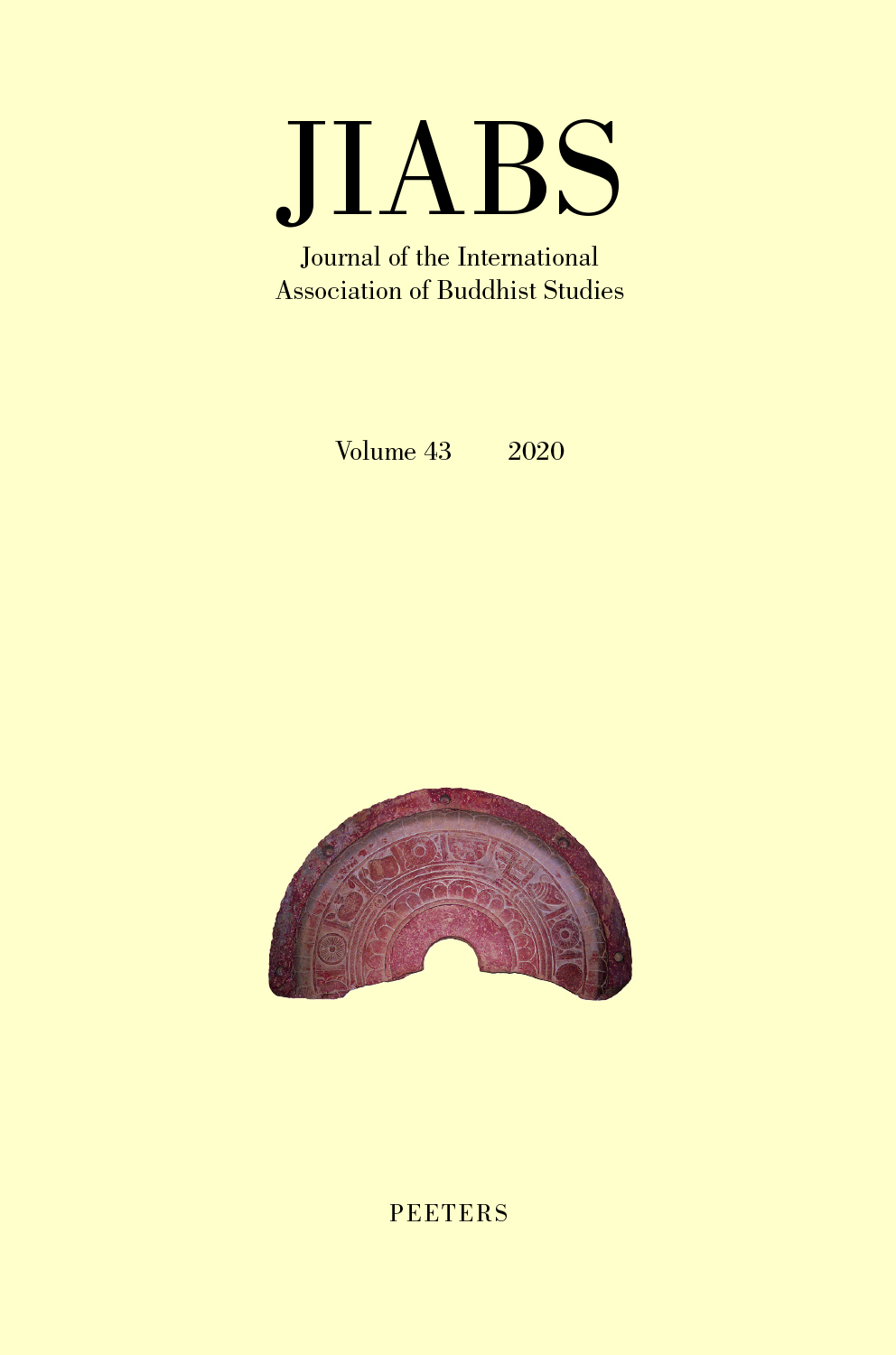 previous article in this issue previous article in this issue | next article in this issue  |

Preview first page |
Document Details : Title: Studies in the Buddhist Translations of Zhi Qian (1) Subtitle: The Abstinence Day Sūtra (T87, Zhai jing) and its Pāli and Chinese Parallels Author(s): NATTIER, Jan Journal: Journal of the International Association of Buddhist Studies Volume: 47 Date: 2024 Pages: 269-329 DOI: 10.2143/JIABS.47.0.3294225 Abstract : The Abstinence Day Sūtra (T87, Zhai jing), produced by Zhi Qian in the early third century CE, is the oldest Chinese translation of a text, with several parallels in Chinese and Pāli, dealing with the proper observance of the poṣadha (Pāli uposatha) day. A close examination of the content and terminology found in Zhi Qian’s translation points to the likelihood that his source was a Dharmaguptaka recension of the sūtra transmitted in the Gāndhārī language. A comparison of the content and the sequence of sections in the Zhai jing with those of all its available parallels casts unexpected light on the evolution of the Pāli version, suggesting that it may have undergone some damage in transmission, as well as raising further questions about the mode of transmission of versions of the text among other ordination lineages (nikāyas) in India. On the Chinese side, other (more preliminary) findings are that the translators of the version preserved in the Madhyamāgama (Zhong ahan jing, T26[202]) are likely to have consulted Zhi Qian’s earlier translation, while another of its parallels (T88, Yupoyi Huishejia jing) may not be a direct translation of an Indian original at all, but rather a Chinese composition drawing on one or more previous translations. Fatal error: Uncaught mysqli_sql_exception: Column 'lib_id' cannot be null in /srv/data/web/vhosts/poj.peeters-leuven.be/htdocs/secure/POJ/tracker2.php:212 Stack trace: #0 /srv/data/web/vhosts/poj.peeters-leuven.be/htdocs/secure/POJ/tracker2.php(212): mysqli_query() #1 /srv/data/web/vhosts/poj.peeters-leuven.be/htdocs/article.php(579): track2_page_hit() #2 /srv/data/web/vhosts/poj.peeters-leuven.be/htdocs/content.php(634): include('...') #3 {main} thrown in /srv/data/web/vhosts/poj.peeters-leuven.be/htdocs/secure/POJ/tracker2.php on line 212 |
